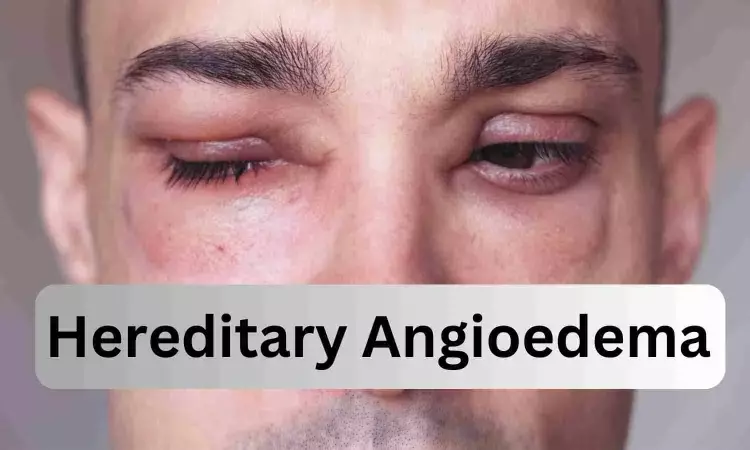- Home
- Medical news & Guidelines
- Anesthesiology
- Cardiology and CTVS
- Critical Care
- Dentistry
- Dermatology
- Diabetes and Endocrinology
- ENT
- Gastroenterology
- Medicine
- Nephrology
- Neurology
- Obstretics-Gynaecology
- Oncology
- Ophthalmology
- Orthopaedics
- Pediatrics-Neonatology
- Psychiatry
- Pulmonology
- Radiology
- Surgery
- Urology
- Laboratory Medicine
- Diet
- Nursing
- Paramedical
- Physiotherapy
- Health news
- Fact Check
- Bone Health Fact Check
- Brain Health Fact Check
- Cancer Related Fact Check
- Child Care Fact Check
- Dental and oral health fact check
- Diabetes and metabolic health fact check
- Diet and Nutrition Fact Check
- Eye and ENT Care Fact Check
- Fitness fact check
- Gut health fact check
- Heart health fact check
- Kidney health fact check
- Medical education fact check
- Men's health fact check
- Respiratory fact check
- Skin and hair care fact check
- Vaccine and Immunization fact check
- Women's health fact check
- AYUSH
- State News
- Andaman and Nicobar Islands
- Andhra Pradesh
- Arunachal Pradesh
- Assam
- Bihar
- Chandigarh
- Chattisgarh
- Dadra and Nagar Haveli
- Daman and Diu
- Delhi
- Goa
- Gujarat
- Haryana
- Himachal Pradesh
- Jammu & Kashmir
- Jharkhand
- Karnataka
- Kerala
- Ladakh
- Lakshadweep
- Madhya Pradesh
- Maharashtra
- Manipur
- Meghalaya
- Mizoram
- Nagaland
- Odisha
- Puducherry
- Punjab
- Rajasthan
- Sikkim
- Tamil Nadu
- Telangana
- Tripura
- Uttar Pradesh
- Uttrakhand
- West Bengal
- Medical Education
- Industry
Donidalorsen- new drug for Hereditary Angioedema, reveals phase 3 study

Donidalorsen- a new drug for Hereditary Angioedema
Hereditary angioedema is a unusual dermatological disorder which presents with by episodic, potentially life-threatening swelling of mucocutaneous system. Kallikrein–kinin dysregulation plays a major role in the pathogenesis of this disease. Long-term prophylaxis can stabilize this system but options are limited. Recently phase 3 study of a new drug Donidalorsen in hereditary angioedema was published in New England Journal of Medicine.
This was a phase 3, double-blind, randomized trial, where patients with hereditary angioedema were randomized to receive donidalorsen (80 mg subcutaneously) or placebo once every 4 or 8 weeks. The primary end point was the time-normalized number of investigator-confirmed hereditary angioedema attacks per 4 weeks (attack rate) from week 1 to week 25.
A total of 90 patients received donidalorsen every 4 weeks (45 patients), donidalorsen every 8 weeks (23 patients), or placebo (22 patients). The least-squares mean time-normalized attack rate was 0.44 (95% CI, 0.27 to 0.73) in the 4-week group, 1.02 (95% CI, 0.65 to 1.59) in the 8-week group, and 2.26 (95% CI, 1.66 to 3.09) in the placebo group. The mean attack rate from week 1 to week 25 was 81% lower (95% CI, 65 to 89) in the 4-week group than in the placebo group (P<0.001) and 55% lower (95% CI, 22 to 74) in the 8-week group than in the placebo group (P=0.004). The median reduction in the attack rate from baseline was 90% in the 4-week group, 83% in the 8-week group, and 16% in the placebo group. The mean attack rate during weeks 5 to 25 was 87% lower (95% CI, 72 to 94) in the 4-week group than in the placebo group (P<0.001) and 60% lower (95% CI, 25 to 79) in the 8-week group than in the placebo group.
Donidalorsen is a ligand conjugated antisense oligonucleotide which specifically reduces prekallikrein expression. When administered every 4 weeks it resulted in an improvement in the least-squares mean total score for the change at week 25 on the Angioedema Quality-of-Life Questionnaire (scores range from 0 to 100, with a score of 100 indicating the worst possible quality of life) that was 18.6 points (95% CI, 9.5 to 27.7) better than that with placebo (P<0.001). The most common adverse events were erythema at the injection site, headache, and nasopharyngitis; 98% of adverse events were mild or moderate in severity.
To conclude donidalorsen treatment reduced the hereditary angioedema attack rate, making it a potential drug for long-term prophylaxis of hereditary angioedema.
Reference- Riedl MA, Tachdjian R, Lumry WR, Craig T, Karakaya G, Gelincik A, Stobiecki M, Jacobs JS, Gokmen NM, Reshef A, Gompels MM, Manning ME, Bordone L, Newman KB, Treadwell S, Wang S, Yarlas A, Cohn DM; OASIS-HAE Team. Efficacy and Safety of Donidalorsen for Hereditary Angioedema. N Engl J Med. 2024 Jul 4;391(1):21-31.
MBBS
Dr Manoj Kumar Nayak has completed his M.B.B.S. from the prestigious institute Bangalore medical college and research institute, Bengaluru. He completed his M.D. Dermatology from AIIMS Rishikesh. He is actively involved in the field of dermatology with special interests in vitiligo, immunobullous disorders, psoriasis and procedural dermatology. His continued interest in academics and recent developments serves as an inspiration to work with medical dialogues.He can be contacted at editorial@medicaldialogues.in.
Dr Kamal Kant Kohli-MBBS, DTCD- a chest specialist with more than 30 years of practice and a flair for writing clinical articles, Dr Kamal Kant Kohli joined Medical Dialogues as a Chief Editor of Medical News. Besides writing articles, as an editor, he proofreads and verifies all the medical content published on Medical Dialogues including those coming from journals, studies,medical conferences,guidelines etc. Email: drkohli@medicaldialogues.in. Contact no. 011-43720751


